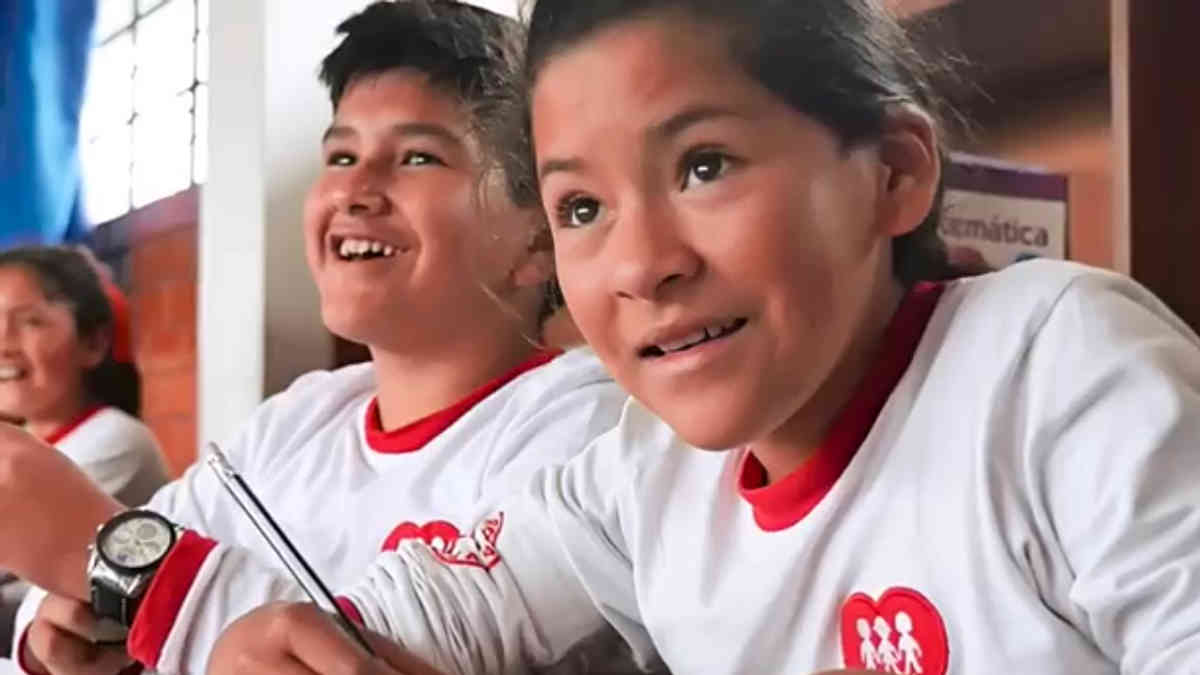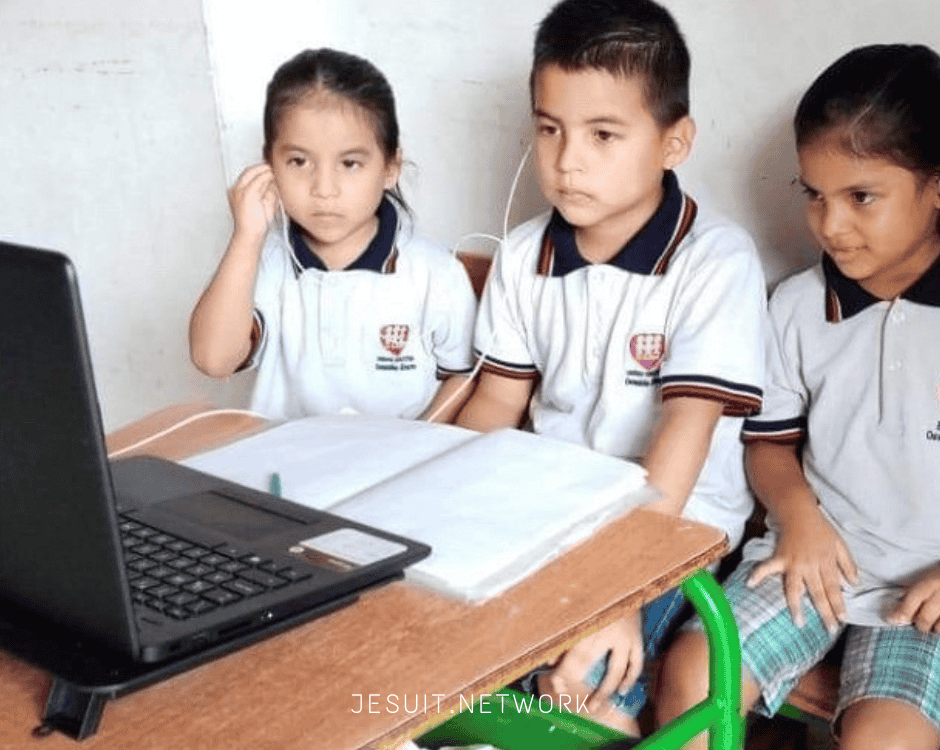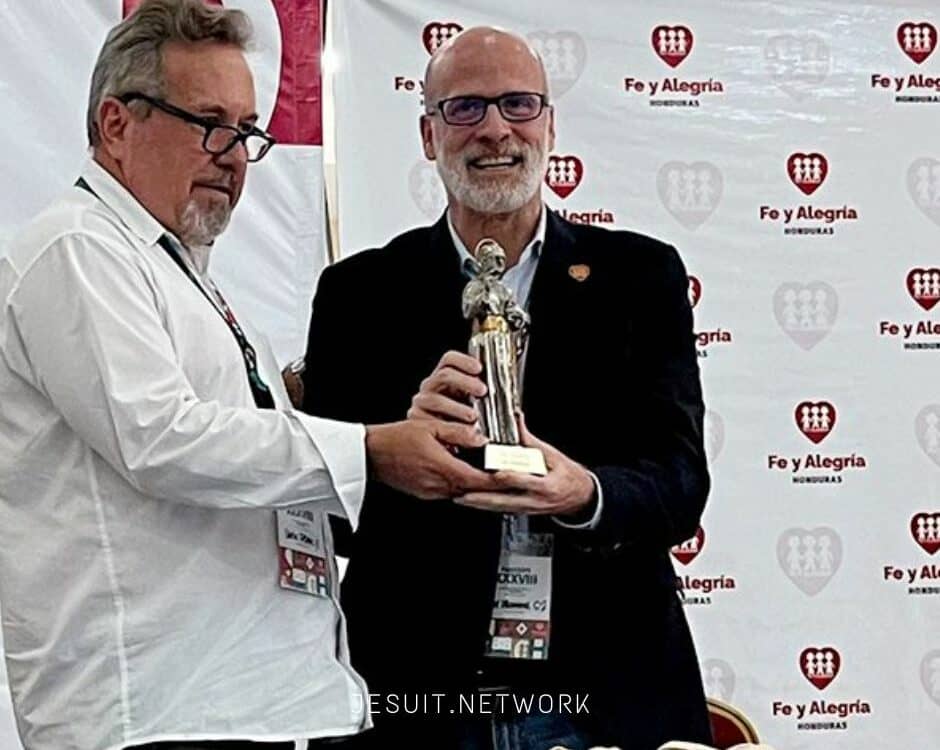This website uses cookies so that we can provide you with the best user experience possible. Cookie information is stored in your browser and performs functions such as recognising you when you return to our website and helping our team to understand which sections of the website you find most interesting and useful.
Secrets of Success of “Fe y Alegría” International Federation
This post was written by Luis Ugalde, SJ | May 2020 |
Fe y Alegría, with one and a half million students in more than twenty countries, is an incredible success of a Venezuelan educational initiative based on need and want. That is why its understanding is so important to rebuild our countries from the extreme multifactorial lack.
1. Necessity rules.
This is a fundamental principle for the existence and success of FyA: it is not born where the conditions are given to make a good school, but precisely where there are no conditions and highlights the naked need. This means that it is born “where the asphalt ends”.

José María Vélaz, his inspirational founder, was convinced that it was not necessary to give many pedagogical instructions to the first nuns who left their good school and embarked on the adventure of responding to a human need: where there is no running water, one ends up drilling one’s own well. In the origin of FyA, the families of the needy community and external solidarity participated, but I dare say that in the first twenty years (1953-1973) the key was the nuns who voluntarily left the orchards of their educational oases which were their schools to throw themselves into the desert on foot and without a camel. Their strength was spiritual: to give their lives for those children with no school and no future. Vélaz did not give them instructions for the classroom or administration, but freedom and wings. Go, let yourselves be challenged by the dramatic need and invent answers with free and creative spirit. He knew that they would weave solutions by weaving together the experience of their previous school, the need of the neighborhood and the “spark” of the people. Vélaz had full confidence in the unlimited capacity of each nun to give herself with her unconditional dedication to the consecrated life of God in her most needy neighbor. In this spirit, the vocation of thousands of lay teachers was also developed, who were truly in love not only with their teaching vocation, but specifically with those children and families in need. That is why in the beginning many schools were very precarious, a real provocation for a scrupulous and careful bureaucrat to disdain them or to order their closure because they did not meet the required conditions.
2. From a bad rural school.
I personally knew and accompanied the farm school of La Guanota in Apure when it was a poor rural school, with no budget, with precarious food, sheds for dormitories with hammocks with dirt floors, and with serious deficiencies in the teachers. However, it was a school that attracted children lacking schooling and hope in places like Laguna Hermosa hundreds of miles away. Boys from various corners of the immense state of Apure arrived at La Guanota using rivers, canoes, pikes and embankments. The need was for the uniform that united them and by taking it seriously FyA de La Guanota soon became one of the best farm-schools in the whole country with its applied pedagogy that included areas of group work, milking and planting.

3. Obliging the State.
Another great secret is that FyA did not fall into the error of exempting the State from its educational responsibility to those in need, because they were going to supply it privately. On the contrary, where FyA arrives, it demands and obliges the State to arrive. All education is public and as such it is assumed by that initiative of the Society that goes ahead of the State and opens the way for it. It encourages school people, parents and teachers to demand the State to pay for their education, to improve the income of educators and to support quality. The community takes on the care of the school that is theirs for together (families, educators, society and state) to climb the arduous hill of quality.
4. To grow without limits.
I lived it in La Pradera with the birth and growth of the Luis María Olaso school at the top of La Vega. There was no school for miles around, and the Christian community moved out of necessity: they got a piece of land and some pennies and managed to convince FyA to build the building. Since it opened twenty years ago, the director, parents and teachers have improved it every year. At the beginning the budget was not enough to buy desks, nor to put glass in the windows, nor was there a canteen, nor a library, nor a sports court, nor a vegetable garden, nor polished floors, nor a computer room…, all of which we admire today. Every year without rest, parents and educators allied and looking for agreements and support in the Catholic University and other institutions advanced towards the wonder that is today.

Today FyA has national and international leadership with a lot of creativity, but they are convinced that this creativity should not be centered in their office, but should be sown and cultivated decentralized in hundreds of schools and thousands of hearts.
5. Social Movement for Change.
I don’t have space to explain, but I do have space to say: Vélaz was reluctant to the ideological effervescence in the Jesuits and in the educators, he feared that if he caught fire in the teachers he could set fire to the prairie leaving only conflicts and ashes. Time has proved him right. The best path for the necessary structural changes is to move forward in strengthening the people at the base, creating educational and organizational power in the powerless. That is why FyA is much more than a school, it is an educational social movement, a more valuable contribution to structural change than the illusory shortcut of an early “revolution” that promises to change everything from above.
There are more secrets to FyA’s success, but there is not enough room to tell them. The need to continue inventing with new and irreverent creativity in the midst of today’s ruin continues.





